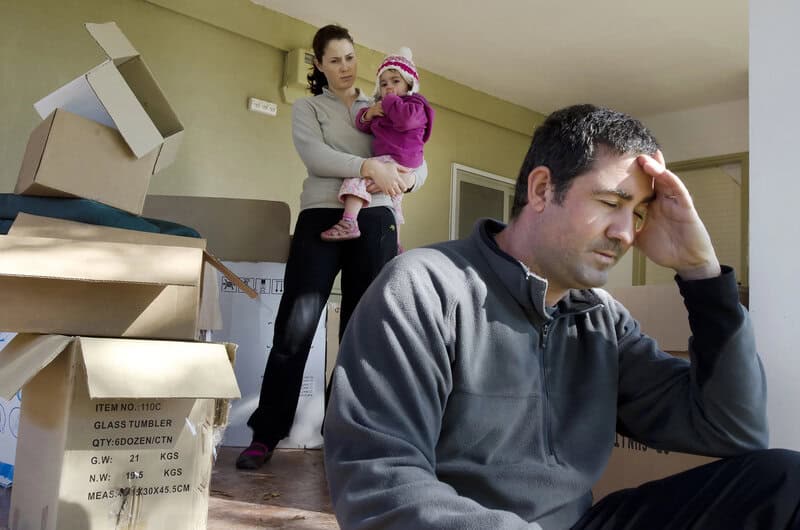The good news about child custody agreements is that they create a routine for holidays agreed upon by both parents and upheld by California family law. These agreements usually outline who the child(ren) will spend time with (or how) over the holidays.
Creating a child custody agreement with the help of a family law specialist is the best way to ensure it’s reasonable and honors the inevitable changes that will arise over time.

Healthy Holiday Season Co-Parenting Tips For Stress-Free Visitation
Let’s be clear: divorce and the holidays are a stressful combination, especially in those first several years until both parents and households have created new rhythms and traditions. There is no doubt that the holidays can exacerbate any tensions, stress, or upsets in your co-parenting dynamic. However, as children age, geographic locations change, or other factors evolve over time, you may find the answer to “whose house for the holidays” isn’t as straightforward as it may have seemed.
Here are some tips on how to navigate changing holiday visitation schedules from what’s stated in the child custody agreement, and how to handle upsets in your holiday plans (or requests that might upset the other parent).
1. Use mediation to draft a big picture child custody & visitation agreement
If you’re in the process of creating a child custody and visitation schedule, now’s the time to really think long-term and build in the flexibility that holiday seasons require over the years, as parents’ and children’s needs change over time. Of course, no one-time child custody and visitation agreement can encompass all that will arise from season to season and year to year.
Working with a divorce mediator is an excellent way to minimize tension and angst, creating a neutral ground where complicated decisions can be made or hard conversations can be held, with guidance from an experienced family law professional. We’ll ensure you never lose sight of the fact that your children’s well-being is always the top consideration.
2. The child’s well-being is always the first priority
That is a perfect segue to the core value: your child or children’s well-being is a top priority. What is best for them physically, mentally, and emotionally should always be the guiding light, with both parents working to keep their own preferences and wishes as a second- or third-tier priority.
If you’ve worked with a marriage or family therapist before or during divorce, they will wholeheartedly support working with you both to navigate holiday plans, addressing where kids will be and for how long, with expert and objective input.
Questions for determining how to divide holidays after divorce
With that in mind, here are some things to think about as you and your (ex)spouse navigate holiday visitation scheduling.
- What are the current traditions for where you spend holidays, and how might that shape the future plan?
- Are there any places or traditions that could remain a joint endeavor without causing conflict or tension? Some families have the ability to spend limited time with extended family members (in-laws) for certain meals or small portions of holiday gatherings, which can be an incredible balm for the kids.
- Alternating every other holiday is a standard for many households, but that may not always work. Try to be as flexible and accommodating as you can for your ex’s change requests in the hopes that they’ll honor that when it’s your turn.
- Longer breaks may require alternating actual holiday days, with school vacation times divided in ways proportional to a child’s capacity to be away from one parent or another for any length of time. For example, if you have an 80/20 schedule and your child is between three and six years old, they may have a hard time being away from the parent they spend the most time with during extended holiday breaks. This time can be extended as they age and are more comfortable with it.
- Changes in a grandparent’s or close relative’s health and well-being may trump where a child spends a holiday in order to maximize their time with that loved one while they can.
- What are your children’s preferences? If it’s age-appropriate, ask your children what they feel is fair and honor that if it makes sense – even if it’s not your preference. That said, there has to be a mutual respect for each parent’s right to be with their children over the holidays, so balance is essential.
- Don’t forget that traveling with children outside state lines requires written permission from the other parent.
Create a protocol for holiday visitation changes
Child custody and visitation agreements are “the law.” However, family law courts understand that things change, and parents have every right to amend or change these agreements as needed. Clear communication lines are essential to healthy co-parenting.
Always create a written trail of any requested changes. This would include a request for the change (where children will be and for how long) and the other party’s agreement. We recommend using email for changes to what’s stated in your visitation agreement. Text exchanges can be complex to navigate, but they may be all you need if your co-parenting foundation is strong.
Ultimately, however, your ex-spouse must agree to the change. If not, you are beholden to the original child custody agreement. If you’re in a situation where your partner is not cooperative about reasonable changes, it may be time to meet with a family law professional and create a post-judgment modification that reflects the current needs.
Gerard A. Falzone Helps Couples Navigate Holiday Child Visitation & Agreements
Would you like to move forward with a child custody and holiday visitation agreement that honors where your family is now, while also including parameters for inevitable changes down the road?
The Law Offices of Gerard A. Falzone are dedicated to helping families navigate divorce and child custody journeys with integrity and heart. There’s no need to make things any more complicated than they need to be. Using time-honored mediation strategies, our Bay Area family law practice eliminates unnecessary stress, emotional drama, and financial burdens. Contact us to schedule a consultation.

 First and foremost, any relocation that takes a child away from their regular school district or outside of a reasonable distance/commute from a co-parent who has child custody or visitation rights is against the law. However, the situation can get sticky if there’s no child custody or visitation agreement in place.
First and foremost, any relocation that takes a child away from their regular school district or outside of a reasonable distance/commute from a co-parent who has child custody or visitation rights is against the law. However, the situation can get sticky if there’s no child custody or visitation agreement in place.  Divorce visitation agreements are legally binding. Each parent is accountable for those documents. Both parents must agree upon any variation, including relocating with their kids after the divorce.
Divorce visitation agreements are legally binding. Each parent is accountable for those documents. Both parents must agree upon any variation, including relocating with their kids after the divorce. Creating a child custody schedule isn’t always easy. Multiple factors should be considered, but the child’s well-being should always be the priority.
Creating a child custody schedule isn’t always easy. Multiple factors should be considered, but the child’s well-being should always be the priority.  In child custody cases, the child’s safety and well-being are the top priority of the family law court. If the judge feels a child’s physical or emotional health is at risk with one of the parents, they may order
In child custody cases, the child’s safety and well-being are the top priority of the family law court. If the judge feels a child’s physical or emotional health is at risk with one of the parents, they may order 



